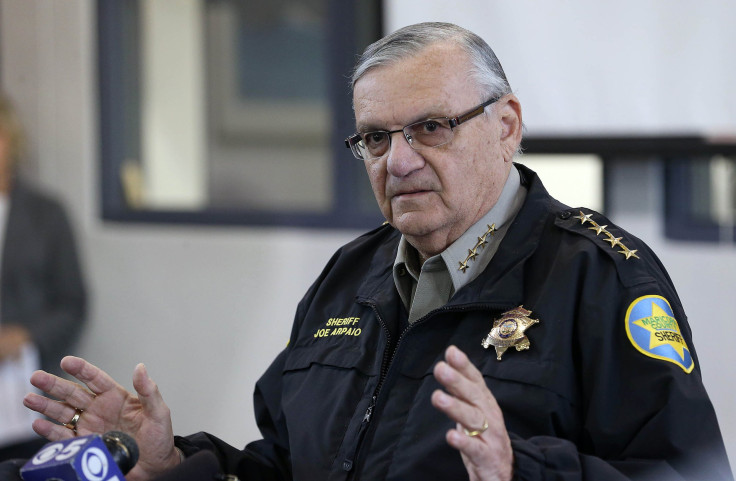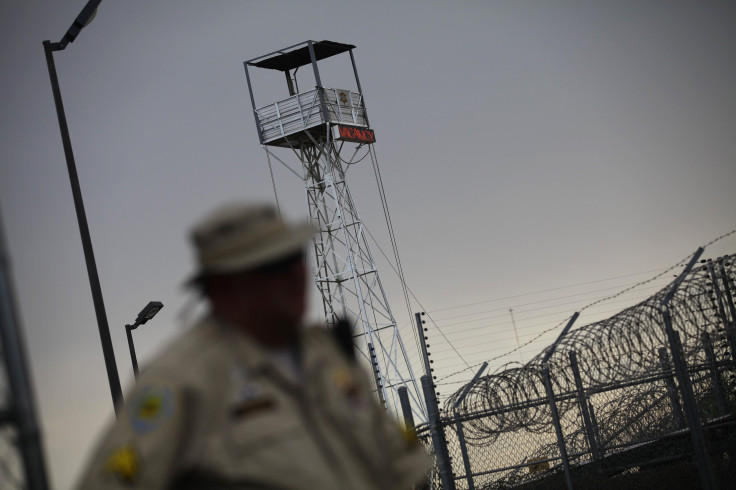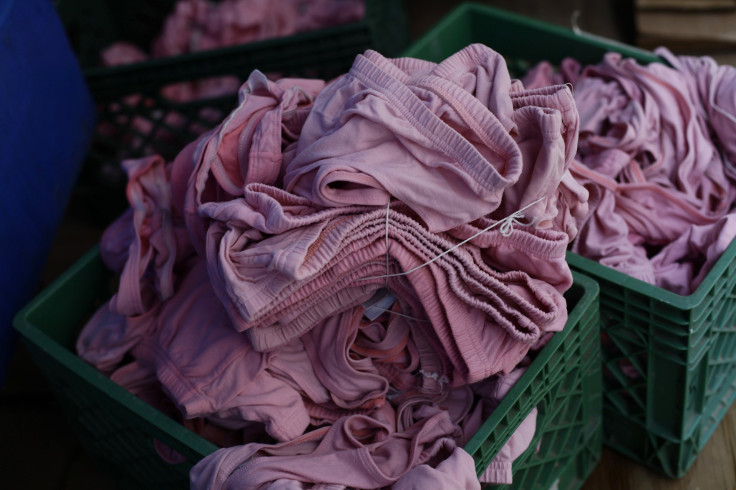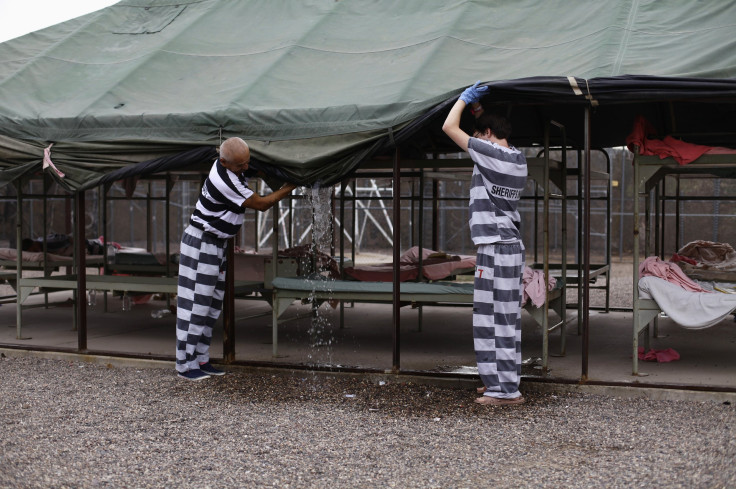Sheriff Joe Arpaio Won't Resign, Says His Deputies Don't Discriminate: Mexican Protesters Disagree

Alejandra Landeros, a young woman of Mexican heritage, marched along the sweltering streets of Phoenix Friday afternoon surrounded by chanting and dancing demonstrators while listening to corrido, Mexican folk music that tells stories of oppression and history. She was part of a stream of about 500 people who had come together to demand the resignation of Maricopa County Sheriff Joe Arpaio, a controversial character in the debate over U.S. immigration policy known to his supporters as “America’s Sheriff” and to his opponents as an instigator of inhumane and racially biased policing.
In 2012, Arpaio’s office found itself entangled in a U.S. Justice Department lawsuit that Thomas Perez, then an assistant attorney general and now the labor secretary, called an “abuse-of-power case involving a sheriff and sheriff’s office that disregarded the Constitution.” With legal fees mounting, the county board of supervisors voted Wednesday to settle the matter and allow for Justice Department oversight of the sheriff’s office.
In a phone interview with International Business Times Friday, Arpaio responded to, and largely dismissed, concerns raised by the protesters, many of which are in line with the complaint filed by the Justice Department, namely, that he has provided unsafe and unsatisfactory services to prisoners, retaliated against critics and unfairly targeted Latinos.
Arpaio said his deputies don’t arrest people unless there are criminal charges to be filed. He said allegations that his prisoners are treated inhumanely and denied food, water or medical treatment are baseless. And he said his office’s willingness to hold undocumented detainees until the U.S. Immigration and Customs Enforcement (ICE) agency comes to get them is a successful practice.
“Everybody in jail was for crimes, murder and everything else. They’re not housed here for being here illegally. They just happen to be here illegally,” Arpaio said. “There are no inmates in our jails that are [in jail] for being here illegally, they’re here for state crimes.”

But, that’s exactly why Landeros said her father was arrested two years ago and exactly why she was protesting Friday. On an October day in 2013, Maricopa County Sheriff’s Office deputies conducted a “work raid” on the construction site where her dad, who is undocumented, was working and arrested him, she said.
At first, he was taken to the Durango Jail in Maricopa County for about four months. Then, he was sent to ICE’s Eloy detention center southeast of Phoenix, which is known for its brutality. He was away from his family for eight months.
“There was a moment when we were thinking about moving out because we couldn’t pay for the house anymore,” Landeros said in a phone interview. She was born in the U.S. and lives in the Phoenix suburb of Glendale, but her parents both immigrated from Mexico. In the fall, she will be the first person in her family to attend college, where she plans to study criminal justice. “Fortunately, my mom was working at the time, so she had a job, but it was really hard,” Landeros recalled.


Immigration activists and Arpaio appear to be speaking the same language, but they seem to ascribe different meanings to the same words. Concerning the “Tent City,” a cornerstone of Arpaio’s legacy and a detention facility where inmates are housed in old Korean War military tents under a sun that can cook the Valley of the Sun to temperatures in the area of 120 degrees Fahrenheit, activists are adamant that this housing -- and other practices of the sheriff’s office -- violate normal expectations of humane treatment.
“In Arizona, we’ve become the epicenter, we’ve also become somewhat of a Petri dish where people test these [immigration and detention] policies,” said Tomas Robles, the executive director of Living United for Change in Arizona, who joined the demonstrations against Arpaio Friday. “The policies in Arizona are not only inhumane, they’re unjust. It set the state backwards and now it’s considered to be one of the most racist states in the country.”
However, Arpaio takes on an almost paternal tone when discussing the outdoor jail.
“I set that up, it’s my program. There’s no way I’m going to take out Tent City,” Arpaio said, recalling the exact date the facility opened: Aug. 3, 1993. He said his critics “have to understand that everybody there is convicted and my answer to them is our men and women are fighting for our country, they’re living in tents, so what’s wrong with convicted inmates to live in tents?”
Arpaio said, “I think: It’s hot in Iraq and Iran,” adding that he had worked in those countries. “I think people every day on the street are working in hot weather, making a living. [The demonstrators] didn’t seem to have any problem demonstrating ... and it’s pretty hot in Arizona, so they didn’t seem to mind the heat.”
Arpaio is accustomed to the criticism of protesters. Last week, he introduced U.S. presidential hopeful and real-estate mogul Donald Trump, who has been criticized recently for calling Mexican immigrants rapists, at a Trump campaign stop in Phoenix. Outside the venue was a group of 500 people demonstrating against both of them. Arpaio was unfazed. He said Trump is raising the right issues as a candidate, and he is convinced that his work as sheriff is the right way to go.
“There’s no way I’m going to resign,” Arpaio said. “I’m the sheriff of Maricopa County ... and there’s no way I’m going to resign. I’m the longest-serving sheriff in the history of Maricopa County, and I’m running again for my seventh term, and demonstrators are not going to force me to resign.”
© Copyright IBTimes 2024. All rights reserved.












